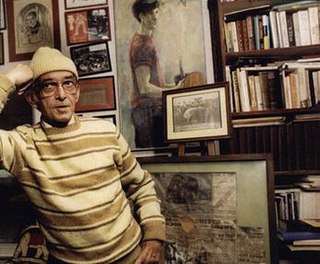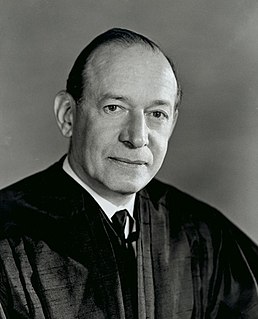A Quote by Huston Smith
A religion made up solely of heightened religious experiences would not be a religion at all. ...The major religious traditions address the mysteries (with or without entheogens), but they have other business to do: widen understanding, give meaning, provide solace, promote loving-kindness, and connect human being to human being.
Related Quotes
Christianity is not a religion. Christianity is the proclamation of the end of religion, not of a new religion, or even of the best of all religions. If the cross is the sign of anything, it's the sign that God has gone out of the religion business and solved all of the world's problems without requiring a single human being to do a single religious thing. What the cross is actually a sign of is the fact that religion can't do a thing about the world's problems - that it never did work and it never will
Religion is important for humanity, but it should evolve with humanity. The first priority is to establish and develop the principle of pluralism in all religious traditions. If we, the religious leaders, cultivate a sincere pluralistic attitude, then everything will be more simple. It is good that most religious leaders are at least beginning to recognize other traditions, even though they may not approve of them. The next step is to accept that the idea of propagating religion is outdated. It no longer suits the times.
My belief is that the various religious traditions have great potential to increase compassion, the sense of caring for one another, and the spirit of reconciliation. However, I believe that a human being, without religious faith, can be a very good person - sincere, a good heart, having a sense of concern for others - without belief in a particular religious faith.
We define religion as the assumption that life has meaning. Religion, or lack of it, is shown not in some intellectual or verbal formulations but in one's total orientation to life. Religion is whatever the individual takes to be his ultimate concern. One's religious attitude is to be found at that point where he has a conviction that there are values in human existence worth living and dying for.
Being holy . . . does not mean being perfect but being whole; it does not mean being exceptionally religious or being religious at all; it means being liberated from religiosity and religious pietism of any sort; it does not mean being morally better, it meas being exemplary; it does not mean being godly, but rather being truly human.
Today courts wrongly interpret separation of church and state to mean that religion has no place in the public arena, or that morality derived from religion should not be permitted to shape our laws. Somehow freedom for religious expression has become freedom from religious expression. Secularists want to empty the public square of religion and religious-based morality so they can monopolize the shared space of society with their own views. In the process they have made religious believers into second-class citizens.
LAUGHTER is the very essence of religion. Seriousness is never religious, cannot be religious. Seriousness is of the ego, part of the very disease. Laughter is egolessness. Yes, there is a difference between when you laugh and when a religious man laughs. The difference is that you laugh always about others - the religious man laughs at himself, or at the whole ridiculousness of man's being. Religion cannot be anything other than a celebration of life.
It is terrible that we all die and lose everything we love; it is doubly terrible that so many human beings suffer needlessly while alive. That so much of this suffering can be directly attributed to religion—to religious hatreds, religious wars, religious delusions and religious diversions of scarce resources—is what makes atheism a moral and intellectual necessity.
Bill Maher is right to condemn religious practices that violate fundamental human rights. Religious communities must do more to counter extremist interpretations of their faith. But failing to recognize that religion is embedded in culture — and making a blanket judgment about the world’s second largest religion — is simply bigotry.
The religious conflicts of the Reformation era were never simply and only about religion, because religion during this era as in the Middle Ages that preceded it, informed and was meant to inform every domain of life. Violence involving religion and touching other areas of life took many forms: from the Protestant destruction of Catholic religious art and objects in iconoclasm, to Catholic executions of Protestants who refused to renounce their views, to major destructive conflicts such as the French Wars of Religion and the Thirty Years' War.
the leading error of the human mind, - the bane of human happiness - the perverter of human virtue ... is Religion - that dark coinage of trembling ignorance! It is Religion - that poisoner of human felicity! It is Religion - that blind guide of human reason! It is Religion - that dethroner of human virtue! which lies at the root of all the evil and all the misery that pervade the world!
Every human being shall see in each and all of his fellow-men a hidden divinity... that every human being is made in the likeness of the Godhead. When that time comes there will be no need for any religious coercion; for then every meeting between one man and another will of itself be in the nature of a religious rite, a sacrament.






































